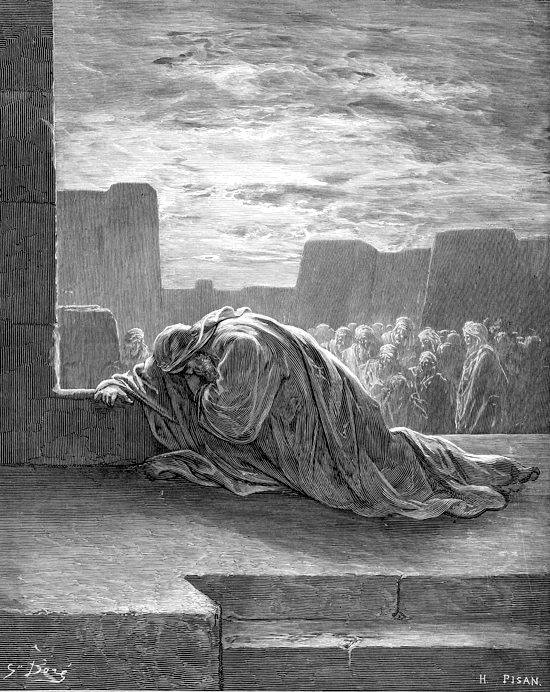Was the Mosaic Covenant, specifically the Decalogue, merely external? Was its obedience simply outward? Could the obedience it demanded be an obedience an unbeliever could render? 1689 Federalism—without blushing—suggests the answer is yes. In fact, Brandon Adams, one of its chief proponents, has appealed to the work of John Erskine in support of this idea that the Mosaic Covenant was an external/physical/temporal covenant exclusively.
But what about Erskine’s contemporaries? Did they accept his formulation as being sound, notwithstanding its departure from classic reformed federalism? One such contemporary did not; his name is Patrick Fairbairn. In his classic work Typology of Scripture, Fairbairn cites and refutes Erskine’s view of the Mosaic Covenant as being external only and the folly of basing this on God being some sort of “temporal prince.” Consider what Fairbairn has to say.
Strange, surely, if it were so, that the God of righteousness and truth should stoop to a mock covenant like this, and resort to such a wretched expedient to uphold His honor and authority! Could it possibly become Him to descend from heaven amid the awful manifestations of divine power and glory, in order to proclaim and settle the terms of a covenant, the only aim of which was to draw around Him a set of formal attendants and crouching hypocrites—men of show and parade—the mere ghosts and shadows of obedient children! It is the worst part of an earthly monarch’s lot to be so often surrounded with creatures of this description; but to suppose that the living God, who from the spirituality of His nature must ever look mainly on the heart, and so far from seeking, must indignantly reject, any profession of obedience which does not flow from the well-spring of a loving spirit,—to suppose that He should have been at pains to establish a covenant of blood for the purpose of securing such a worthless display, betrays an astonishing misapprehension of the character of God, or the most shallow and unsatisfactory view of the whole transactions connected with the revelation of Moses.
Fairbairn, Patrick. Typology of Scripture, (Grand Rapids, MI: Kregel Publications, 1993), Vol. 2, 92.
At the heart of Fairbairn’s criticism of Erskine is the character and doctrine of God. He is saying that it is altogether incongruent with who God is to suggest that the Mosaic Covenant, which God makes, is merely external and that the obedience it demanded was likewise merely external. Notice especially how he repudiates the idea of there even being such a thing as a “profession of obedience which does not flow from the well-spring of a loving spirit.” This is in exact contradiction with 1689 Federalism’s conception of the Mosaic Covenant. I have also made this same point in a paper-critique of 1689 Federalism, pointing to the absurdity of such an idea, and likewise alluding to this being a contradiction of the 1689 London Baptist Confession of Faith on at least two points (16.4 and 19.6).
Finally, Fairbairn says that this view is not only mistaken on the character and doctrine of God, but that it is likewise mistaken on the very nature of the Mosaic Covenant. In other words, he is recognizing that there is a connection between the two and that they cannot be arbitrarily separated or bifurcated. Rather, they must be rightly harmonized; this is hermeneutics 101. Thus, any notion of “obedience” in the Mosaic Covenant must always be put in its proper context, namely, as an obedience that is rendered unto God Himself. But as soon as this point is recognized, 1689 Federalism loses its legs. Its covenant theology must be hewn down by the sword of theology proper.
